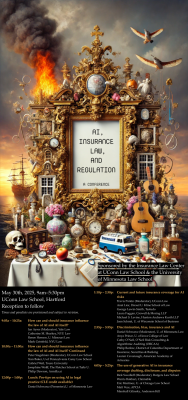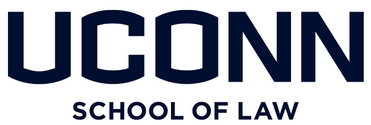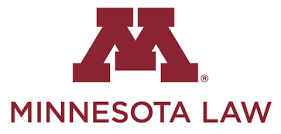A Conference Presented by the Insurance Law Center at UConn Law & the University of Minnesota Law School
AI, Insurance Law, and Regulation
Friday, May 30, 2025
9 a.m. – 5:30 p.m. ET
UConn School of Law, Hartford Campus
Virtual and In-Person
The Insurance Law Center at UConn Law, in conjunction with the University of Minnesota Law School, is pleased to welcome academics, practitioners, regulators, and students to a conference focusing on issues that arise at the intersection of insurance and artificial intelligence. We hope you can join us.
Details

- Call for Papers: Whether or not you participate or attend, we encourage anyone with a relevant paper to submit to it for potential publication of a symposium issue of the Connecticut Insurance Law Journal. If you are interested in submitting a paper, please send an abstract to ilc@uconn.edu and cilj@uconn.edu no later than April 15, 2025. Contributions of any length are welcome, and shorter essays (roughly 4,000 to 6,000 words) are particularly encouraged.
- Location: The event will be held at the UConn School of Law, 55 Elizabeth Street, in the William F. Starr HallReading Room. Official location information is here. The precise Google Maps location is here. Metered parking is available, as well as free on-street parking.
- Hotels: We have arranged a discounted rate of $299/night with the Delamar Hotel West Hartford. To book at this rate, please use the following link (Code is: UNIV052925). Another convenient option is the Hartford Marriott Downtown.
- Remote attendance: Virtual attendance will be allowed for all portions of the event except the lunch practicum. To attend virtually, please register.
- CLE Credits: One hour of Continued Learning Credit will be available for those admitted to the bar in Connecticut, Ohio, Minnesota, and New York who attend the lunchtimepracticum.
- Questions: Please email ilc@uconn.edu.
- Webinar Information:
-
- Date and time:
Friday, May 30, 2025 9:00 AM | (UTC-04:00) Eastern Time (US & Canada) - Join link:
https://uconnvtc.webex.com/uconnvtc/j.php?MTID=m1536b42e95e976ccfa836f7401efe6d4 - Webinar number:
2865 818 4141 - Webinar password:
ilc2025 (4522025 when dialing from a phone or video system) - Join by phone
+1-415-655-0002 US TollWebinar Information: - Access code:
286 581 84141
- Date and time:
Agenda
(Revised 5/20/2025)
8:30a – 9:00a: Registration (30 mins)
9:00a – 9:05a: Opening Remarks (5 mins)
9:05a – 10:25a: Panel 1A: How can and should insurance influence the law of AI and AI itself? (80 mins)
This panel will explore how liability for AI-related harms should take into account the current and future availability and structure of liability insurance. Key questions include:
- Should AI liability frameworks be designed to avoid exposing potentially judgment-proof firms to uninsurable risks?
- Should governments encourage or mandate liability insurance for firms exposed to specific AI-related risks?
- Should AI liability frameworks incorporate factors insurers can evaluate during underwriting and rating, such as safe harbors for AI systems that perform at least as safely as human-operated systems?
Ian Ayres (Moderator), Yale Law School
Catherine M. Sharkey, New York University School of Law
Kenneth S. Abraham, University of Virginia School of Law
Renee Henson, University of Missouri School of Law
Mark Geistfeld, New York University School of Law
10:25a – 10:30a: Break (5 mins)
10:30a – 11:50a: Panel 1B: How can and should insurance influence the law of AI and AI itself? (Continued) (80 mins)
Peter Siegelman (Moderator), University of Connecticut Law School
Tom Baker, University of Pennsylvania Carey Law School
Gabriel Weil, Touro University Jacob D. Fuchsberg Law Center
Josephine Wolff, The Fletcher School at Tufts University
Philip Dawson, Armilla.ai
11:50a – 12:00p: Break (10 mins)
12:00p – 1:00p: LUNCH: Pro-tips on using AI in legal practice (60 mins)
Join us for a lunch session highlighting the latest AI tools designed for legal professionals, with a focus on practical integration into legal practice. The discussion will cover key AI use cases, potential risks and ethical considerations, foundational AI models, and specialized legal models such as Co-Counsel and Vincent. Additionally, the session will present the most recent data and developments in AI to help lawyers navigate this evolving technology responsibly and effectively. Special attention will be given to the ethical obligations of attorneys when adopting AI, ensuring compliance with professional standards and safeguarding client confidentiality. Connecticut, Ohio, Minnesota, and New York CLE credits will be available.
Daniel Schwarcz (Presenter), University of Minnesota Law School
1:00p – 1:10p: Break (10 mins)
1:10a – 2:30p: Panel 2: Current and future insurance coverage for AI risks (80 mins)
This panel will explore how the evolution of AI liability will affect insurance markets. Key questions include:
- Will specialized AI liability policies emerge as AI risks evolve?
- To what extent do current liability insurance policies cover AI-related risks, and does this expose insurers to unpriced risks?
- How can insurers obtain consistent and standardized data on AI risks to efficiently underwrite, rate firms, and incentivize risk-reducing innovation?
Travis Pantin (Moderator), University of Connecticut School of Law
Anat Lior, Drexel University Kline School of Law
George Lewin-Smith, Testudo
Laura Foggan, Crowell & Moring LLP
Michael S. Levine, Hunton Andrews Kurth LLP
Joan Schmit, University of Wisconsin School of Business
2:30p – 2:35p: Break (5 mins)
2:35p – 3:55p: Panel 3: Discrimination, bias, insurance and AI (80 mins)
This panel will explore how the use of new types of AI in the insurance industry can and should be regulated. Key questions include:
- When does the use of AI to discriminate among policyholders raise legal or regulatory issues?
- To what extent should insurance laws and regulations be updated to reflect AI risks?
- How should internal and external audits of insurers evaluate the risks of AI bias and discrimination?
- What problems and opportunities have efforts to regulate AI bias and discrimination surfaced in the insurance setting?
Daniel Schwarcz (Moderator), University of Minnesota Law School
Anya Prince, University of Iowa College of Law
Cathy O’Neil, O’Neil Risk Consulting & Algorithmic Auditing (ORCAA)
Philip Barlow, District of Columbia Department of Insurance, Securities & Banking
Lauren Cavanaugh, American Academy of Actuaries
3:55p – 4:05p: Break (10 mins)
4:05p – 5:25p: Panel 4: The use of generative AI in insurance coverage drafting, disclosure, and disputes (80 mins)
This panel will explore how generative AI will impact the drafting, interpretation, and disclosure of insurance policy terms. It will also explore the use of generative AI in the context of insurance coverage disputes. Key questions include:
- How can and should generative AI be used to interpret insurance policies?
- Can generative AI improve policyholder understanding of Insurance?
- Will generative AI disrupt the sale and distribution of insurance?
- How can generative AI be used by insurers and insureds in the resolution of insurance disputes?
Rick Swedloff (Moderator), Rutgers Law School
Warris Bokhari, Claimable
Eric Martínez, University of Chicago Law School
Matt Vece, American Property Casualty Insurance Association
Marshall Gilinsky, Anderson Kill
5:25p – 5:30p: Closing remarks (5 mins)
5:30p – 6:20p: Reception (50 mins)
Sponsored by:


